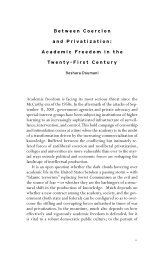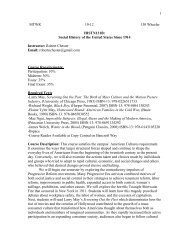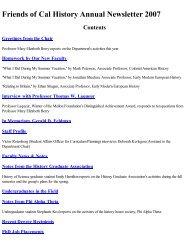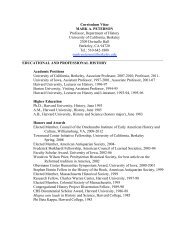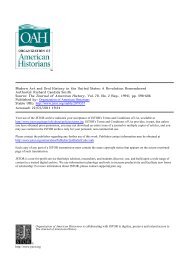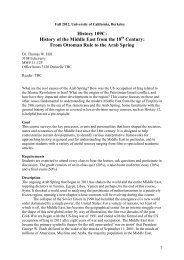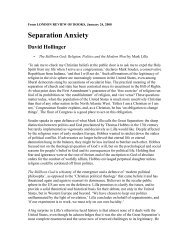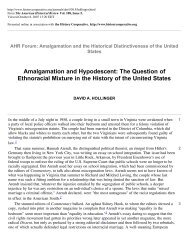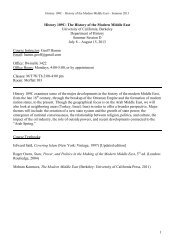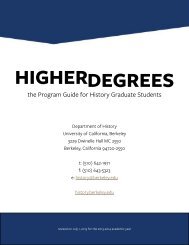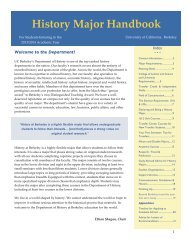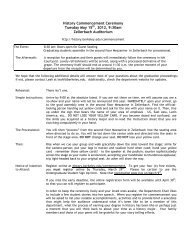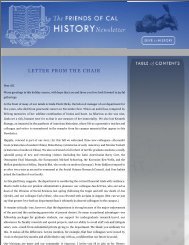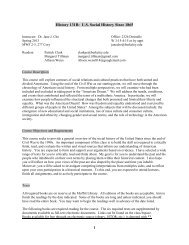My Grandmother and Other Stories: Histories of the Palestinians as ...
My Grandmother and Other Stories: Histories of the Palestinians as ...
My Grandmother and Other Stories: Histories of the Palestinians as ...
Create successful ePaper yourself
Turn your PDF publications into a flip-book with our unique Google optimized e-Paper software.
Hanna studied in <strong>the</strong> Schneller’s Boys School (also known <strong>as</strong> <strong>the</strong> ‘Bishop Gobat’<br />
school) in Jerusalem, gaining fluency in English <strong>and</strong> French to complement his<br />
native Arabic <strong>and</strong> Turkish. Around 1908 he w<strong>as</strong> sent, under Fa<strong>the</strong>r Gisler’s auspices,<br />
to an institute outside Freiberg, Switzerl<strong>and</strong> to study agricultural engineering. Two<br />
colourful anecdotes stem from this period: first, Papa l<strong>and</strong>ed in Bari, Italy, on his way<br />
to Switzerl<strong>and</strong> <strong>and</strong> for <strong>the</strong> first time saw a man using a phone booth. Apparently, he<br />
thought <strong>the</strong> man w<strong>as</strong> a madman <strong>and</strong> had been chained <strong>and</strong> manacled in <strong>the</strong> booth.<br />
Subsequently, when he arrived at <strong>the</strong> school dorm, he w<strong>as</strong>n’t warmly received by<br />
<strong>the</strong> European students <strong>and</strong> one challenged him to a fight. The story goes that Papa<br />
knocked him down <strong>and</strong> w<strong>as</strong> ready to do him serious injury, if not dispatch him, when<br />
school <strong>of</strong>ficials intervened <strong>and</strong> said, in essence, “Look–that’s enough.”<br />
Hanna returned home prior to <strong>the</strong> outbreak <strong>of</strong> World War I brimming with naïve<br />
optimism, hoping to modernize local agriculture <strong>and</strong> even to found an agricultural<br />
institute modelled after his Swiss alma mater. He also imported agricultural machinery<br />
(presumably from Switzerl<strong>and</strong>) in <strong>the</strong> hope <strong>of</strong> mechanizing farming on <strong>the</strong> family<br />
property. The equipment soon broke down, however, <strong>and</strong> parts were impossible to<br />
find. <strong>My</strong> fa<strong>the</strong>r remembers playing on <strong>the</strong> rusting hulks <strong>of</strong> <strong>the</strong>se machines during<br />
childhood visits to Um al-Kundum.<br />
Hanna’s dreams <strong>of</strong> agricultural innovation were submerged in <strong>the</strong> roiling political waters<br />
<strong>of</strong> <strong>the</strong> time <strong>and</strong> place. Radical changes ushered in by world war were soon on <strong>the</strong> way.<br />
British, Australian, <strong>and</strong> New Zeal<strong>and</strong>er troops swooped into Palestine from Egypt. In<br />
March <strong>of</strong> 1918, a British/ANZAC <strong>of</strong>fensive sought to sever <strong>the</strong> Hejaz railway near Um<br />
al-Kundum. At night, three members <strong>of</strong> <strong>the</strong> Colonial Forces lost <strong>the</strong>ir bearings <strong>and</strong> were<br />
trapped behind Turkish lines. Hanna <strong>and</strong> his bro<strong>the</strong>rs found <strong>the</strong> three, sheltered <strong>the</strong>m,<br />
disguised <strong>the</strong>m in Arab garb, <strong>and</strong> guided <strong>the</strong>m back to Allied camp.<br />
W<strong>as</strong> this a personal <strong>and</strong> tangible expression <strong>of</strong> n<strong>as</strong>cent Arab nationalism, <strong>and</strong> hostility<br />
to <strong>the</strong> Turks? Did it reflect solidarity with co-religionists? W<strong>as</strong> it a manifestation <strong>of</strong><br />
a culture <strong>of</strong> hospitality, <strong>and</strong> comp<strong>as</strong>sion for those in need? Or a meaner calculation<br />
<strong>of</strong> <strong>the</strong> direction that political winds were <strong>the</strong>n blowing? I do not know <strong>the</strong> answer. It<br />
appears, however, that Hanna <strong>and</strong> his bro<strong>the</strong>rs actively supported <strong>the</strong> invaders in a<br />
variety <strong>of</strong> ways–for which <strong>the</strong>y ultimately paid dearly.<br />
The Turks learned <strong>of</strong> <strong>the</strong>ir disloyalty <strong>and</strong> sacked Um al-Kundum, killing <strong>the</strong> livestock,<br />
burning <strong>the</strong> crops <strong>and</strong> buildings, <strong>and</strong> taking most <strong>of</strong> <strong>the</strong> family into custody. The<br />
family w<strong>as</strong> imprisoned in ‘al-Moskobiyeh’, <strong>the</strong> so-called ‘Russian Compound’<br />
that still exists in Jerusalem <strong>and</strong> is used by Israel today to jail Palestinian political<br />
prisoners. All <strong>of</strong> <strong>the</strong> family members were scheduled to be hanged.<br />
Jerusalem Quarterly 30 [ 91 ]



